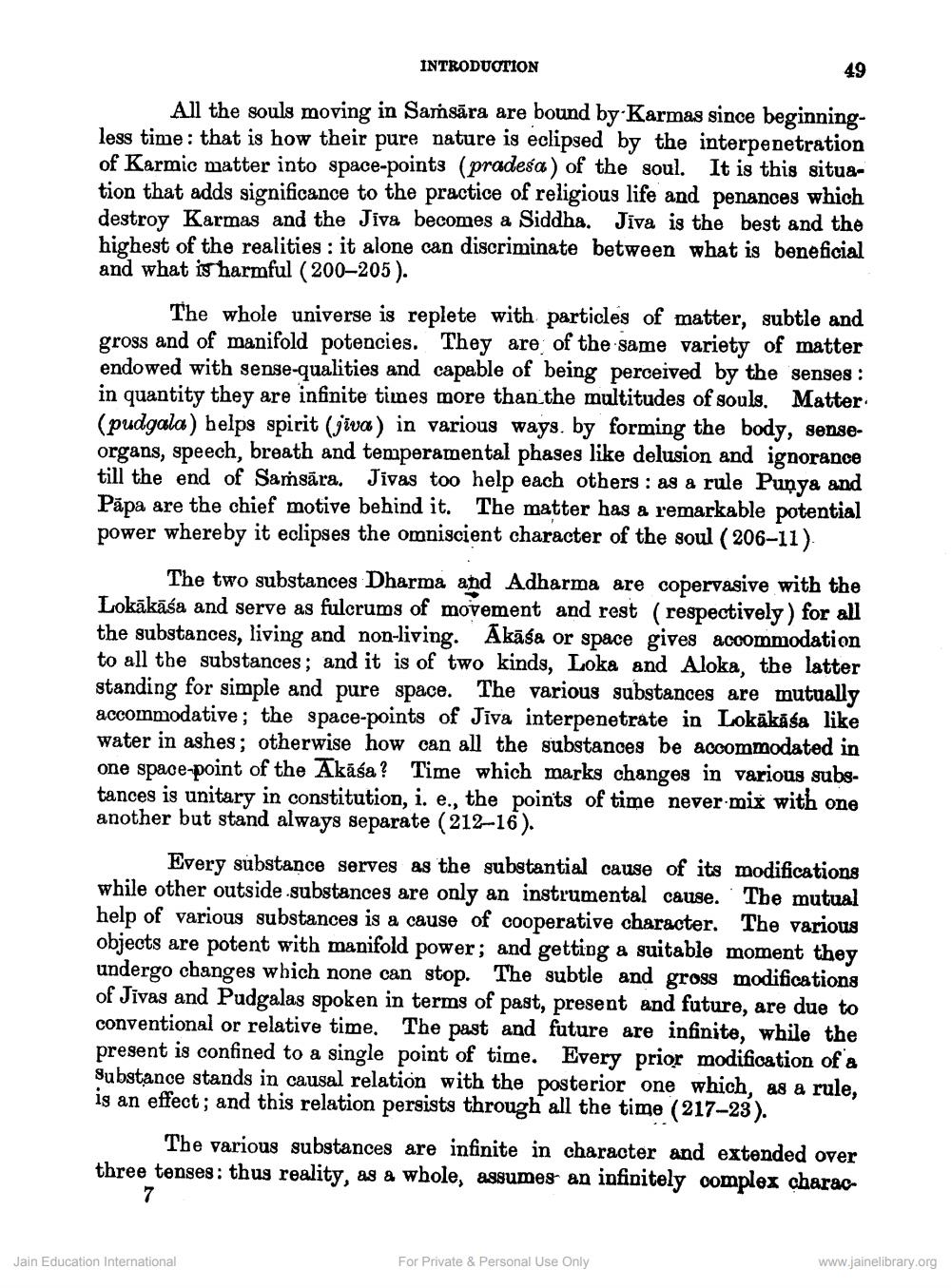________________
INTRODUCTION
All the souls moving in Samsāra are bound by Karmas since beginningless time that is how their pure nature is eclipsed by the interpenetration of Karmic matter into space-points (pradeśa) of the soul. It is this situation that adds significance to the practice of religious life and penances which destroy Karmas and the Jiva becomes a Siddha. Jiva is the best and th highest of the realities : it alone can discriminate between what is beneficial and what is harmful (200–205).
The whole universe is replete with particles of matter, subtle and gross and of manifold potencies. They are of the same variety of matter endowed with sense-qualities and capable of being perceived by the senses : in quantity they are infinite times more than the multitudes of souls. Matter (pudgala) helps spirit (jiva) in various ways. by forming the body, senseorgans, speech, breath and temperamental phases like delusion and ignorance till the end of Saṁsāra. Jivas too help each others : as a rule Punya and Papa are the chief motive behind it. The matter has a remarkable potential power whereby it eclipses the omniscient character of the soul ( 206-11).
The two substances Dharma and Adharma are copervasive with the Lokākāśa and serve as fulcrums of movement and rest (respectively) for all the substances, living and non-living. Akāśa or space gives accommodation to all the substances; and it is of two kinds, Loka and Aloka, the latter standing for simple and pure space. The various substances are mutually accommodative; the space-points of Jiva interpenetrate in Lokākāśa like water in ashes; otherwise how can all the substances be accommodated in one space-point of the Akāśa? Time which marks changes in various substances is unitary in constitution, i. e., the points of time never mix with one another but stand always separate (212-16).
Every substance serves as the substantial cause of its modifications while other outside.substances are only an instrumental cause. The mutual help of various substances is a cause of cooperative character. The various objects are potent with manifold power; and getting a suitable moment they undergo changes which none can stop. The subtle and gross modifications of Jivas and Pudgalas spoken in terms of past, present and future, are due to conventional or relative time. The past and future are infinite, while the present is confined to a single point of time. Every prior modification of a Substance stands in causal relation with the posterior one which, as a rule, is an effect; and this relation persists through all the time (217-23).
The various substances are infinite in character and extended over three tenses: thus reality, as a whole, assumes an infinitely complex charac
Jain Education International
www.jainelibrary.org
For Private & Personal Use Only




